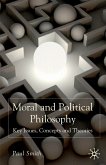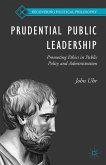Utilitarianism, belaboured by repeated counterexamples, has fallen out of favour as an ethical theory. In Utilitarianism: Restorations; Repairs; Renovations, noted Canadian philosopher David Braybrooke revisits Jeremy Bentham's master idea that statistical evidence should determine social policies, and - perhaps surprisingly, given Braybooke's recent championship of natural law - dispels the discredit that standard versions of utilitarianism have invited. On the issue between rule-utilitarianism (which gives due weight to rules) and act-utilitarianism (which does not), Braybrooke argues that act-utilitarianism cannot be carried out even in principle except under the auspices of rules. He shows that the problem with not knowing all consequences ahead of time vanishes if decisions are subject to continual rounds of revision. Invoking the elementary statistical principle that groups should not be changed in membership just to get more favourable results, he disposes of the accusation that utilitarianism prescribes gratuitous life-sacrifices. Substituting comparative censuses for the hedonistic calculus that figures in standard utilitarianism, Braybrooke excludes gratuitous sacrifices also of happiness short of life-sacrifices. The census notion is proof against the self-contradictory advice that the calculus sometimes supplies. Moreover, it readily accommodates evidence about happiness and needs, both better pursued by dropping the notion of utility. Recast in these ways, utilitarianism takes on a very different guise from the standard versions; it is notwithstanding a guise congenial to Bentham's master idea, and its affinity with the utilitarian tradition and ordinary language shows upin the full intelligibility that it gives to the slogan, "the greatest happiness of the greatest number."








